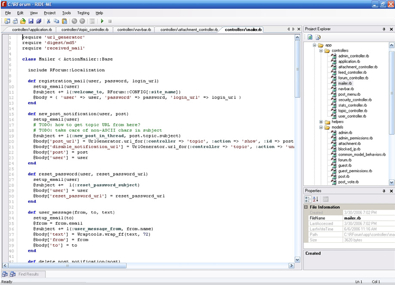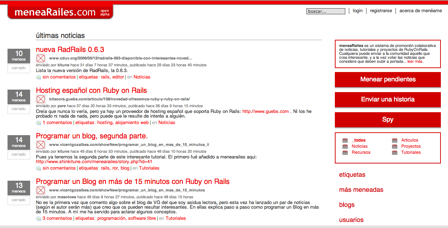From the ever-productive Erik Veenstra comes AllInOneRuby, a “Just-in-Time and Temporary Installation of Ruby”. The concept is simple:
AllInOneRuby creates a compressed executable for Windows, Linux or Mac OS X (Darwin) that includes both the Ruby interpreter and the runtime libraries. Why? Because it’s sometimes not easy, or possible, or desirable, or allowed to do a complete Ruby installation. That’s where AllInOneRuby comes in. I always have a USB-memory stick with AllInOneRuby in my pocket.
I need to try this along with Platypus, and see if I can deliver a complete working Rails application as a ‘click and run’ application for regular users on OS X (and Windows, though not with Platypus). Read More



